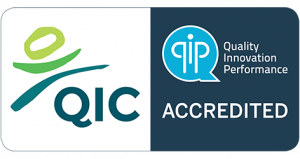Prevalent & Preventable Violence Against Women and their children #PPVAW
Adelaide Conference – A Reflection by Phoebe Wallish 3/10/2016
The general feel at this PPVAW conference is sombre and heavy. There seems like many people have done a lot of work/ research, yet it hasn’t even scratched the surface. As I sit in each and every presentation my heart felt heavy and I could feel the burden of how far the issue is entrenched in our system and how far we have to go. It is not only daunting but incredibly challenging. At least we are having the conversation!
On the flip side I was humbled to be around so many strong, intelligent, resilient women. Women who have suffered at the hands of their abusive partners like Rosie Batty. Women who have fought for the plight of those marginalised in our community like Antoinette Braybrook and women who advocate globally for equality and social justice for all women like Marai Larasi, to name a few.
As a women who (to be honest) sometimes thinks the problem is too large, too ingrained, I was inspired and re-energised and given a sense of hope. We all need that. You see violence against women is a bigger problem than we all realise. Those at the conference like myself live and breathe the stats, we all know all too well that 1 in 3 women will experience sexually assault/ violence in their lifetime. One women dies every week to a male that they know and these stats are 10 times worse if you are Aboriginal or a Torres Strait Islander.
At the heart of this is our society’s gender norms and stereotypes which fuel these attitudes. For example why is it that we predominately see mens sport on our commercial television stations? Why do we only learn about the men that fought in our wars and those famous male composers like Mozart and Beethoven? Why is it that there are next to no female statues in our major cities (New York actually has none). There is a white male privilege that exists everywhere we look. Did you know there are more CEO’s named John that there are Female CEO’s?
If anything this conference has started a richer more progressed conversation. It highlights the need to work together within communities to address these issues. It highlights that we need to take an intersectional approach in our program planning where we should always address diversity through culture, faith, gender and sexuality in our community.
The Pantene Advertisement (you know the one) was quoted several times saying “it won’t happen overnight but it will happen” as was Australia’s combative approach towards the cigarette smoking campaign. I feel sickened to think that many more women will suffer over the next 30 years while we fight to embed cultural and societal change.
Although my feeling are contradictive and switch between sombre and sickened to inspired and energised, I know one thing. After this conference I feel stronger about the future of my gender. I know that putting intersectionality into practice and working together is the only way forward to embed lasting change. I feel honoured to have represented drummond street services at such an event.







